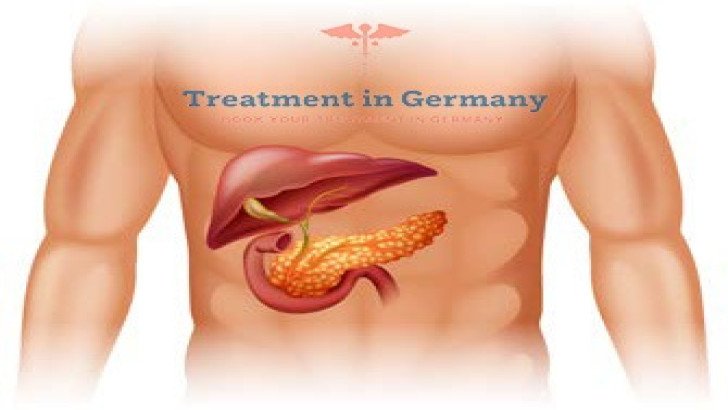
Pancreatic cancer affects your pancreas, a gland in your abdomen that aids in digestion. Pancreatic cancer symptoms include nausea, bloating, fatigue, jaundice and lack of appetite.
Germany remains a global leader in advanced oncology, emphasizing the critical need to identify early symptoms of pancreatic cancer in diabetics. Pancreatic cancer, particularly pancreatic ductal adenocarcinoma (PDAC), poses a significant challenge due to its late diagnosis, with diabetes serving as a key risk factor and potential early indicator.
Pancreatic cancer is a highly aggressive malignancy, often diagnosed at advanced stages due to its subtle onset. Diabetes, especially new-onset type 2 diabetes or worsening glycemic control in existing diabetics, is increasingly recognized as a risk factor and early warning sign. The disease disrupts insulin production and glucose metabolism, with risk factors including chronic pancreatitis, obesity, smoking, and genetic predispositions (e.g., BRCA2 mutations). German oncology centers lead in delivering personalized cancer care, integrating early detection, advanced diagnostics, and patient education to enhance disease management and patient outcomes.
Recognizing early symptoms of pancreatic cancer in diabetics is vital for timely intervention and improved prognosis. These symptoms may overlap with diabetes complications but warrant attention, especially in newly diagnosed or uncontrolled diabetic patients. Common early symptoms include:
These early symptoms are often nonspecific, necessitating heightened diagnostic awareness. German endocrinologists and oncologists educate diabetic patients to recognize these signs and seek early detection.
Enhancing Diagnostic Awareness for Pancreatic Cancer in Diabetics
Diagnostic awareness is crucial for identifying pancreatic cancer in diabetics before advanced stages. German oncology centers employ strategic diagnostic approaches:
German healthcare providers ensure proactive diagnostic awareness, enabling early detection and personalized treatment plans for pancreatic cancer patients.
Clinical Insights into Early Symptoms in Diabetic Patients
Germany’s clinical insights in 2025 highlight the evolving understanding of early symptoms of pancreatic cancer in diabetics, supported by research advancements and patient data.
Symptom Patterns and Diabetes Connection
Research indicates that new-onset diabetes may precede pancreatic cancer diagnosis by 6-36 months. Clinical insights reveal:
Risk Stratification and Screening
German oncologists stratify diabetic patients for pancreatic cancer risk:
Emerging Research and Trials
Ongoing clinical trials in Germany explore early symptom detection:
Why Germany Excels in Early Symptom Recognition
Germany offers unparalleled expertise for diabetic patients at risk of pancreatic cancer:
Risk Factors and Prevention Strategies for Pancreatic Cancer in Diabetics
Preventing pancreatic cancer progression in diabetics supports early detection efficacy. Key risk factors include:
German specialists recommend regular diabetes monitoring, EUS screening, and lifestyle changes to reduce disease risk.
Comprehensive Multidisciplinary Health Care
Germany’s multidisciplinary health care integrates:
This approach optimizes patient outcomes.
Post-Diagnostic Support and Enhancing Quality of Life
Post-diagnostic care includes:
Challenges and Future Horizons
Challenges include delayed recognition and overlapping symptoms. German researchers address these through:
Future clinical insights promise enhanced early detection rates.
Conclusion
Germany’s focus on early symptoms of pancreatic cancer in diabetics offers hope through heightened diagnostic awareness, clinical insights, and holistic health strategies. With multidisciplinary health care and advanced screening, German oncology centers achieve improved early detection rates and treatment outcomes, positioning Germany as a global leader in pancreatic cancer care for diabetics.
Frequently Asked Questions
What are the early symptoms of pancreatic cancer in diabetics to watch for in 2025?
Early symptoms include unexplained weight loss, persistent fatigue, abdominal discomfort, new or worsening diabetes, nausea, and changes in stool, especially in diabetics over 50, prompting EUS or MRI screening.
How does diabetes relate to the early detection of pancreatic cancer?
New-onset diabetes or worsening glycemic control in diabetics may signal pancreatic cancer up to 36 months before diagnosis, making regular blood glucose monitoring and imaging critical for early detection.
What diagnostic methods are used to confirm pancreatic cancer in diabetics in Germany?
Germany employs endoscopic ultrasound (EUS), multiparametric MRI, CA 19-9 testing, liquid biopsies, and genomic profiling to ensure diagnostic accuracy for diabetic patients at risk.
Are there specific clinical trials in Germany focusing on early symptoms in diabetic patients?
Yes, trials like PANDA Trial and DIAB-PANC Study investigate diabetes onset and glycemic changes as pancreatic cancer markers, enhancing early detection rates with AI-driven analysis.
What follow-up care is provided after detecting pancreatic cancer symptoms in diabetics in Germany?
Comprehensive care includes monitoring with ctDNA and CA 19-9 tests, rehabilitation for fatigue or weight loss, and emotional wellness support through counseling and community groups for diabetic patients.
How does Germany compare to the UK or US in recognizing pancreatic cancer in diabetics?
Germany excels with clinical insights, rapid access to screening trials, advanced imaging technologies, and holistic health strategies, offering superior early detection rates compared to many international peers.
Can recognizing early symptoms prevent pancreatic cancer progression in diabetics?
Early recognition through symptom awareness and imaging can lead to timely treatment, potentially reducing disease progression risk by 20-30% when diagnosed at early stages, as per German studies.
Does Germany support international diabetic patients at risk of pancreatic cancer?
Yes, hospitals in Germany provide language assistance, travel coordination, and emotional wellness programs to ensure seamless care and diagnostic awareness for global diabetic patients.
What are the most promising approaches for early symptom detection in diabetics in Germany?
AI-driven risk models, EUS with elastography, multimodal MRI, and biomarker development (e.g., CA 19-9) are pushing the boundaries of early detection for pancreatic cancer in diabetics.
How do Germany’s strategies for early symptom recognition differ from traditional pancreatic cancer detection methods?
Unlike traditional methods relying on late-stage symptoms and basic ultrasound, Germany’s approach uses proactive screening, AI analysis, and multimodal imaging to enhance diagnostic awareness and early detection in diabetic populations.
For more information or a free consultation, visit our contact us page.
Kindly complete the form below, and our dedicated team will reach out to you promptly. We look forward to connecting with you soon!
Trierer Straße, 56072 Koblenz, Germany

.webp)
 (1).webp)

.webp)
 (1).webp)


.webp)
 (1).webp)

.webp)
 (1).webp)
